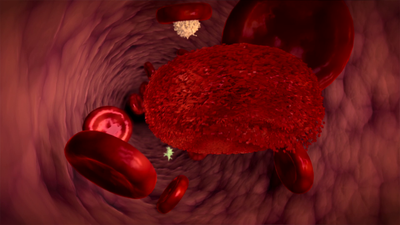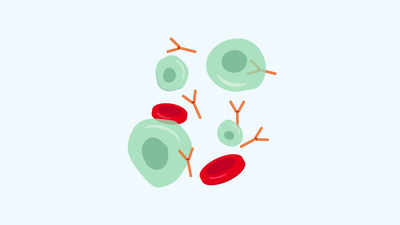Lymphoma
The large number of people affected by lymphoma globally ensures that the disease looms as a threat in the vast ocean of cancer worldwide. This is a chance to help yourself to better understand the nature of the disease, including its symptoms, causes, and possible treatment modalities.
Understanding Lymphoma
Lymphoma is a type of cancer that starts in the immune system of the body, known as the lymphatic system. It happens due to abnormal growth of cells within the lymphocytes, which are responsible for fighting infections. There are two kinds of lymphoma, Hodgkin lymphoma (HL) and non-Hodgkin lymphoma (NHL). It's important to know the differences between these two types for the correct diagnosis and treatment.
Considering the dynamics of disease development, non-Hodgkin lymphoma can be divided into:
- slow-growing lymphoma (the so-called indolent lymphoma) - e.g. follicular lymphoma;
- aggressive lymphoma, e.g. diffuse large B-cell lymphoma (DLBCL);
- very aggressive lymphoma (e.g. Burkitt lymphoma).
Non-Hodgkin lymphomas are ranked 6th among malignant cancers in terms of cancer morbidity and mortality. Hodgkin lymphoma, on the other hand, accounts for about 0.5% of all malignant neoplasms with the incidence of 2-3 people per 100,000 per year. For that disease two peaks of morbidity are observed - third decade of life and after 50 years of age.
Symptoms of Lymphoma
Identifying the signs and symptoms of lymphoma is of paramount importance for early detection and intervention. Characteristic symptoms include painless swelling of lymph nodes, inexplicable weight loss, fever, night sweats, and fatigue. However, symptoms may vary between both the types and stages of lymphoma, thereby making detection a daunting task with the help of proper medical evaluation.
Symptoms that might appear:
- Abdominal pains
- Bleeding from e.g. digestive tract, mucous membranes, nose
- Hepatitis
- Skin lesions
- Skin itching (in some Hodgkin lymphoma patients)
- Neurological symptoms - e.g. caused by nerve compression or presence of pathological mass within central nervous system
Some patients may also experience general symptoms of the disease, known as B symptoms
- fever >38 degrees
- night sweats
- weight loss >10%
Causes of Lymphoma
Lymphoma is likely caused by a combination of genetics and environmental factors. Exposure to various substances in the environment, such as chemicals and radiation, can contribute to lymphoma development. Certain inherited traits may also make some people more susceptible to the disease. Infections like Epstein-Barr virus (EBV) and human immunodeficiency virus (HIV) can increase the risk of lymphoma. Understanding these interactions can help in the prevention and early detection of the disease.
Treatment for Lymphoma
The type of lymphoma will determine the kind of treatment, and most often, it is chemotherapy with other medications that forms the baseline. However, despite progress, an entirely satisfactory method for the treatment of non-Hodgkin lymphoma has not been found. However, for Hodgkin lymphoma, aggressive chemotherapy and radiotherapy have dramatically altered disease outcomes. Early-stage Hodgkin disease boasts cure rates as high as 90-95%. However, the cure rates for non-Hodgkin lymphoma range between 40% to 70%, and bone marrow transplantation is a very active area of treatment.
Be a lifesaver. Register now to help those fighting lymphoma and other blood cancers. Your registration could provide hope and a brighter future. Join us today.


